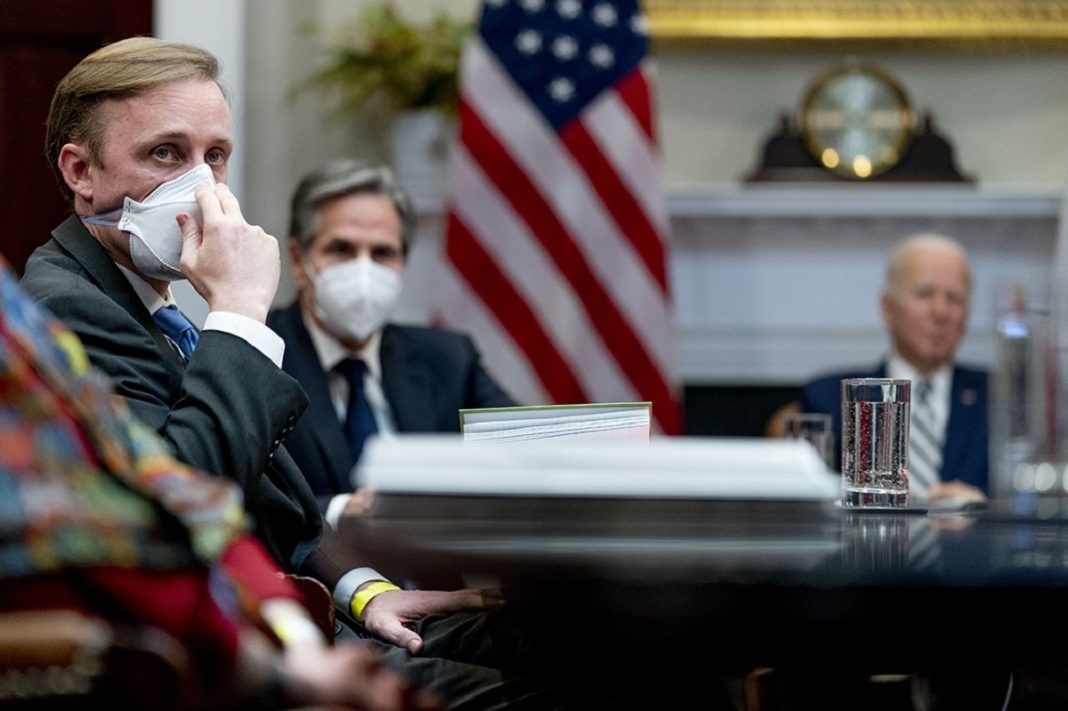On a trip aimed at bolstering sometimes strained ties with Riyadh, Sullivan also held joint talks with the crown prince, UAE national security adviser Sheikh Tahnoon bin Zayed al-Nahyan and India’s national security adviser Ajit Doval “to advance their shared vision of a more secure and prosperous Middle East region interconnected with India and the world,” the White House said.
Sullivan’s meeting came after a period in which US-Saudi ties have been damaged by oil production cuts by Saudi-led OPEC+ and the 2018 killing of Washington Post journalist Jamal Khashoggi.
“He reviewed significant progress in talks to further consolidate the now 15-month long truce in Yemen and welcomed ongoing UN-led efforts to bring the war to a close, as well as covering a range of other issues,” the White House statement added.
During the meeting on Sunday, Sullivan, President Joe Biden’s top national security aide, also thanked the crown prince for Saudi support to US citizens during evacuations from Sudan, the statement read.
US special envoy Tim Lenderking travelled to Oman and Saudi Arabia earlier this month to seek to advance Yemen peace efforts, the State Department said.
Saudi Arabia launched the bloody war against Yemen in March 2015 in collaboration with a number of its allies and with arms and logistics support from the US and several Western states to reinstall Mansour Hadi, who resigned from the presidency in late 2014 and later fled to Riyadh amid a political conflict with the Houthi movement.
The war objective was also to crush the Houthi movement, which has been running state affairs in the absence of an effective government in Yemen.
However, it has stopped well shy of all of its goals, despite killing tens of thousands of Yemenis and turning the entire country into the scene of the world’s worst humanitarian crisis.
The International Organization for Migration (IOM) has warned that over 25.5 million Yemenis are living beneath the poverty line due to the repercussions of the Saudi-led war in the impoverished country.
The UN migration agency announced that seven years of war in Yemen also caused the displacement of more than 4 million people in the country.
